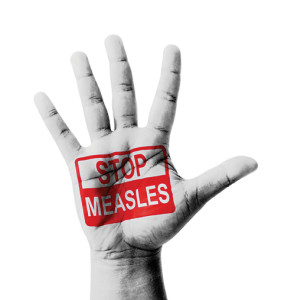Measles Still Common
Posted on May 29, 2014 by bob in Health
Measles is a highly contagious respiratory disease caused by a virus. Each year approximately 60 people in the U.S. contract measles. However, in 2013 cases more than tripled to around 189 people infected. So far this year there have been 187 cases, almost as many cases as seen in all of 2013.
Measles can stay airborne or live on surfaces for up to two hours. Symptoms include fever, runny nose, cough and a rash all over the body. Those infected can transmit the virus for about five days before the typical rash appears. Symptoms occur within one to two weeks after exposure. Measles is so contagious that any child who is exposed to it and is not immune will probably get the disease.
“Measles is still common in many countries,” says Dr. Karen Landers, pediatrician and medical consultant for the Ala. Dept. of Public Health Immunization Division. “People who get measles put others who are not vaccinated at risk.”
In addition, communities with pockets of unvaccinated people are vulnerable to measles outbreaks.
State law requires children be up to date on their vaccinations prior to attending school. Adolescents and college students must also be up to date on their MMR (measles, mumps, rubella) immunizations.
About ten percent of children with measles get an ear infection, and up to five percent contract pneumonia. Encephalitis and death are rare, but do occur. Routine MMR vaccination is recommended for all children, with the first dose given at age 12-15 months, and a second dose at age 4-6 years. Unless they have other evidence of immunity, adults born after 1956 should get at least one dose of MMR vaccine. Two appropriately spaced doses of MMR vaccine are recommended for health care personnel, college students, and international travelers.
Where possible, persons suspected of having measles should be screened before entering waiting rooms and also isolated, or have their office appointments scheduled at the end of the day to prevent exposure to other patients.
For more information, contact your local health department or visit www.adph.org/immunization/.
Information courtesy of the Alabama Dept. of Public Health.









